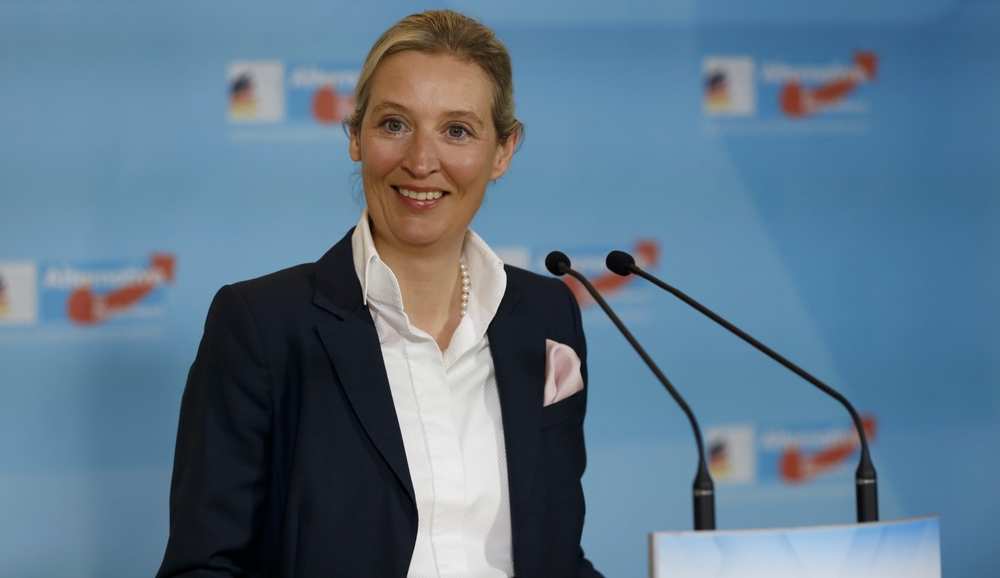A new INSA survey conducted for the Bild newspaper has revealed that Germans place the most trust in Alice Weidel, the chancellor candidate for the Alternative for Germany (AfD), to address key issues like reducing illegal migration and cutting taxes for employees. However, skepticism remains high about whether any candidate will deliver significant reforms after the next federal election.
When asked which candidate they trust most to reduce the number of asylum seekers, 41 percent of respondents named Weidel, far ahead of Friedrich Merz of the CDU/CSU (19 percent), Chancellor Olaf Scholz of the SPD (8 percent), and Robert Habeck of the Greens (5 percent).
Weidel also leads on the issue of tax cuts for employees, with 20 percent believing she is most likely to deliver, followed by Scholz (17 percent), Merz (12 percent), and Habeck (9 percent). Notably, 29 percent of respondents trust none of the candidates to reduce employee taxes.
While Weidel leads on migration and employee tax cuts, respondents viewed Friedrich Merz as the strongest candidate for economic growth. Some 26 percent believe Merz is most likely to stimulate the economy and create jobs, compared to 19 percent for Weidel, 12 percent for Habeck, and 10 percent for Scholz.
Merz also ranks highest for corporate tax relief, with 28 percent trusting him to deliver, followed by Weidel at 19 percent.
🇩🇪❕ The Alternative for Germany (AfD) party has confirmed @Alice_Weidel as its candidate for chancellor in next month's federal election and vowed to oversee a mass overhaul of German governance from immigration to energy policies.
In its first 100 days, the party has pledged:… pic.twitter.com/TvnAQQqWTq
— Remix News & Views (@RMXnews) January 12, 2025Habeck and Scholz, both of whom comprise the current federal administration, performed poorly in every category, evidencing the public’s dissatisfaction with the coalition that has governed since 2021.
Despite the preferences for certain candidates, public skepticism about meaningful reforms remains widespread. Two-thirds of respondents do not believe employees will see tax relief after the election, with only 20 percent holding out hope, while 46 percent of Germans actually expect a VAT increase after the election.
The survey results make difficult reading for leaders of Germany’s legacy parties with the exception of Friedrich Merz and the Christian Democratic Union (CDU). In contrast, they evidence the growing support for Weidel’s AfD and are a strong endorsement of her pledges to reform Germany’s migration and economic policy.
The key factor following the election next month will be whether Weidel’s AfD actually has any influence to implement its plans, or whether the legacy parties will unite to keep the AfD from power, as is expected and as was attempted recently in neighboring Austria with Herbert Kickl’s Freedom Party (FPÖ). Weidel, however, remains confident of some level of involvement in the next administration, insisting last week, “The firewall against the AfD will not last.”
An INSA poll published on Monday showed the AfD at 22 percent — its highest level of support in over a year — following Weidel’s high-profile X Spaces conversation with Elon Musk during which she outlined her plans to recharge Germany’s nuclear power stations, slash taxes, and ramp up border controls and enforcement.
Germany, INSA poll:
CDU/CSU-EPP: 31% (+1)
AfD-ESN: 22%
SPD-S&D: 15% (-1)
GRÜNE-G/EFA: 13%
BSW-NI: 6.5% (+0.5)
FDP-RE: 4%
LINKE-LEFT: 3.5% (+0.5)
+/- vs. 6-10 January 2025
Fieldwork: 10-13 January 2025
Sample size: 2,005
➤ https://t.co/obOCVirJfd#btw25 #Bundestag #wahlen pic.twitter.com/zwayMIU2Te
— Europe Elects (@EuropeElects) January 13, 2025At the party’s conference in Saxony over the weekend, Weidel called for mass deportations, saying that “if this is to be called ‘remigration,’ then let it be called ‘remigration.'”
Weidel made the statement in the broader context of the AfD’s immigration policies, which she outlined in her speech, detailing what the AfD would deliver in its first 100 days of power if she is elected chancellor.
“(We will) switch from cash to benefits in kind for asylum seekers, cancel social benefits for non-residents, and carry out deportations on a grand scale,” she vowed.
Germans head to the polls on Feb. 23.






